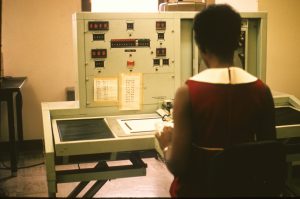Artificial Intelligence: Personalized Career Development Algorithms
The rise of Artificial Intelligence (AI) has been one of the most significant technological advancements of the 21st century. From self-driving cars to virtual personal assistants, AI has become a pervasive part of our daily lives. But beyond these mainstream applications, AI has also been making waves in the world of career development. With the help of personalized algorithms, AI is revolutionizing the way individuals prepare for and pursue their careers. In this article, we’ll delve into the world of Artificial Intelligence and explore how personalized career development algorithms are changing the game for job seekers and employers alike.
AI and Personalized Career Development: An Unlikely Pair
The concept of using AI for personalized career development may seem like an unlikely pair. After all, isn’t the process of finding the right career path a deeply personal journey? It’s true that career development has always been driven by self-reflection and introspection. However, AI has the power to enhance and streamline this process in ways that were previously unimaginable.
In simple terms, personalized career development algorithms are computer programs that use AI to gather data, analyze patterns, and make personalized recommendations for career paths and opportunities. These algorithms are designed to learn from users’ behavior, interests, and skills to provide customized career guidance. By combining the power of AI with the personal touch of career development, these algorithms are transforming the way individuals shape their professional lives.
The Inner Workings of Personalized Career Development Algorithms
Collecting Data
Personalized career development algorithms gather data from various sources, including online profiles, resumes, and self-assessments. They also track users’ interactions with job listings, educational courses, and other career-related content. With the help of AI, these algorithms can efficiently collect and organize large amounts of data, providing a more comprehensive understanding of users’ skills, interests, and preferences.
Using Machine Learning to Analyze Patterns
Once the data is collected, the algorithms use machine learning techniques to analyze patterns and identify potential career paths and opportunities that align with users’ skills and interests. By continuously learning from the data, the algorithms can provide increasingly accurate recommendations over time.
Customized Career Guidance
The ultimate goal of personalized career development algorithms is to provide customized career guidance to users. Based on the data analysis and machine learning, the algorithms can suggest specific career paths, job opportunities, and even training courses that are tailored to each individual. This personalized approach to career development not only helps individuals make informed decisions but also saves time and effort in the job search process.
The Benefits for Job Seekers
For job seekers, one of the most significant benefits of using personalized career development algorithms is the ability to gain a better understanding of their skills and interests. These algorithms can help individuals identify their strengths and weaknesses, as well as potential career paths that they may have never considered. This can be especially beneficial for individuals who are unsure about what they want to do or are looking to make a career change.
Additionally, personalized career development algorithms can also save job seekers time and effort in the often tedious job search process. By providing tailored recommendations, these algorithms eliminate the need to scroll through endless job listings, saving job seekers the frustration of sifting through irrelevant opportunities.
The Benefits for Employers
Personalized career development algorithms are not just beneficial for job seekers; they also offer significant advantages for employers. These algorithms can help employers find the best candidates for their job openings by providing more accurate and relevant matches. By considering not just the skills and experience of candidates but also their interests and preferences, employers can ensure a better fit and increase employee satisfaction.
Furthermore, by utilizing personalized career development algorithms, employers can also reduce recruitment and training costs. With tailored recommendations, candidates are more likely to be a good fit for the role, leading to reduced turnover rates and onboarding costs.
Looking Ahead
As AI continues to evolve and become more advanced, the potential for personalized career development algorithms is endless. These algorithms have the potential to revolutionize the way individuals prepare for and pursue their careers. With their ability to gather, analyze, and provide personalized career guidance, personalized career development algorithms are set to become the go-to tool for both job seekers and employers.
In Conclusion
Artificial Intelligence and personalized career development algorithms may have seemed like an unlikely pair at first, but their impact on the world of career development is undeniable. As these algorithms continue to learn and evolve, we can expect to see even more personalized and accurate recommendations for job seekers, leading to better career choices and happier employees. As for employers, personalized career development algorithms are sure to become a key tool in finding the right candidates for their organizations. With AI leading the way, the future of career development looks brighter than ever.











